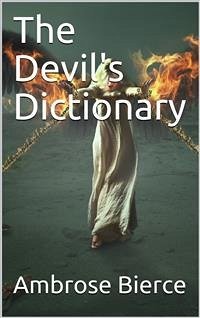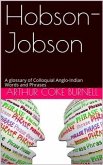The Devil's Dictionary is a satirical dictionary written by American Civil War soldier, wit, and writer Ambrose Bierce consisting of common words followed by humorous and satirical definitions. The lexicon was written over three decades as a series of installments for magazines and newspapers. Bierce's witty definitions were imitated and plagiarized for years before he gathered them into books, first as The Cynic's Word Book in 1906 and then in a more complete version as The Devil's Dictionary in 1911. Initial reception of the book versions was mixed. In the decades following, however, the stature of The Devil's Dictionary grew. It has been widely quoted, frequently translated, and often imitated, earning a global reputation. In the 1970s, The Devil's Dictionary was named as one of "The 100 Greatest Masterpieces of American Literature" by the American Revolution Bicentennial Administration. It has been called "howlingly funny", and Wall Street Journal columnist Jason Zweig wrote that The Devil's Dictionary is "probably the most brilliant work of satire written in America. And maybe one of the greatest in all of world literature." Sample definitions Cannon (n.) An instrument employed in the rectification of national boundaries. Conservative (n.) A statesman who is enamoured of existing evils, as distinguished from the Liberal, who wishes to replace them with others.[33] Cynic (n.) A blackguard whose faulty vision sees things as they are, not as they ought to be. Hence the custom among the Scythians of plucking out a cynic's eyes to improve his vision.[34] Egotist (n.) A person of low taste, more interested in himself than in me. Faith (n.) Belief without evidence in what is told by one who speaks without knowledge, of things without parallel. Lawyer (n.) One skilled in circumvention of the law.[35] Love (n.) A temporary insanity curable by marriage... Marriage (n.) A household consisting of a master, a mistress, and two slaves, making in all, two. Positive (a.) Mistaken at the top of one's voice. Religion (n.) A daughter of Hope and Fear, explaining to Ignorance the nature of the Unknowable. Youth (n.) The Period of Possibility, when Archimedes finds a fulcrum, Cassandra has a following and seven cities compete for the honor of endowing a living Homer. Youth is the true Saturnian Reign, the Golden Age on earth again, when figs are grown on thistles, and pigs betailed with whistles and, wearing silken bristles, live ever in clover, and cows fly over, delivering milk at every door, and Justice is never heard to snore, and every assassin is made a ghost and, howling, is cast into Baltimost! —Polydore Smith
Bitte wählen Sie Ihr Anliegen aus.
Rechnungen
Retourenschein anfordern
Bestellstatus
Storno









